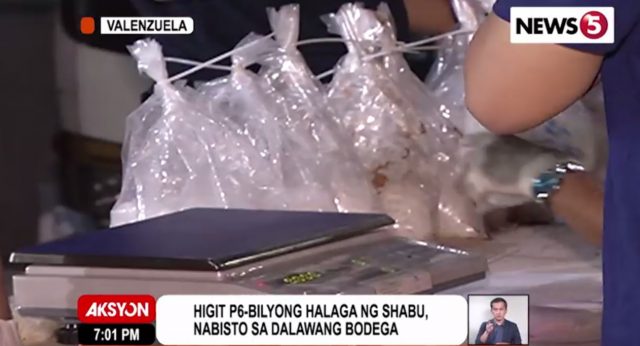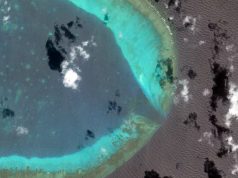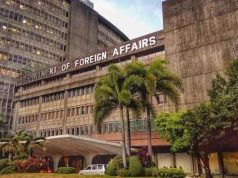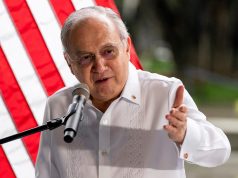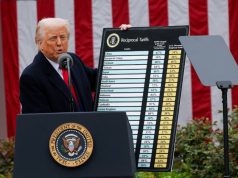MANILA, Philippines — China took exception to allegations it was to blame for the smuggling of drugs into the country, saying on Tuesday that information it provided Philippine authorities led to the seizure of the 604 kilos of crystal meth, or “shabu,” seized in a warehouse Valenzuela City in May.
Taiwan, which has also been mentioned in connection with drugs smuggled into the county, also said it “has never been the source of illegal drugs entering the Philippines” but “is the best partner for the Philippines to jointly combat against the illegal transnational drugs.”
The shipment and the alleged corruption within the Bureau of Customs that allowed it to slip into the country are the subject of a long-running inquiry by the Senate Blue Ribbon committee.
Late last month, Senator Richard Gordon, the committee chairman, said the country’s “shabu problem begins with China and ends with China” and suggested that the government might need to reconsider its relations with its giant neighbor, whose friendship President Rodrigo Duterte has openly courted to the point of setting aside the ruling of an international arbitral court reinforcing the country’s ownership of territories in the South China Sea that China has been encroaching on.
But in a press release issued by Chinese embassy spokesperson Li Lingxiao, China, citing the “long … history and remarkable achievements” of cooperation with the Philippines in “drug control,” said “false reports” blaming it for drug smuggling “have negative affect on deepening China-Philippines cooperation in drug control” and “will hold back elimination of drug problem, the two countries’ relations and the fundamental interests of the people in our region.”
It also presented what it said were the “basic facts” of the seizure of the 604 kilos of shabu:
“At 21:00 on May 25, 2017, Chinese customs law enforcement officers found suspected of smuggling drugs clues. After careful and hard verification, China Customs figured out the accurate arrival information about the goods to Philippines. To prevent the suspected goods taken by the drug dealers, China Customs immediately conveyed accurate information to Philippines Customs through customs co-operation channel, and contacted the logistics company to delay the delivery at the same time. Around 24 o’clock that night, Philippine customs law enforcement arrived at the scene and took control of the suspected goods. The action took place after working hour and the whole process took less than 4 hours. This kind of law enforcement cooperation efficiency ensures the success of this action, and shall be praised no matter where in the world. The action prevents drug getting into Philippines, and fully proves the two countries’ law enforcement agency has strong determination to fight against drug smuggling, action without hesitation and efficient cooperation spirit.”
However, the press release did not explain how the drugs managed to slip past Chinese customs and be shipped abroad.
On the other hand, Gary Song-Huann Lin, the chief representative of the Taiwan Economic and Cultural Office, said in a statement that he “recently approached the relevant Philippine governmental agencies and the Senate to clarify that Taiwan has never been the source of illegal drugs.”
TECO serves as Taiwan’s de facto embassy in the country in the absence of formal diplomatic ties because of the “One China Policy.”
Lin cited “established cooperation mechanisms and systems” established in the fight against transnational drug trafficking, including the “Mutual Legal Assistance Agreement between TECO and MECO in criminal matters,” “MOU between TECO and MECO on combatting transnational crimes,” and “MOU on Cooperation of Anti-Illegal Drugs.”
Because of these, he said, “the Philippine authorities have been able to root out 12 important cases resulting in the confiscation of over 1,000 kilograms finished products of methamphetamine (shabu), more than 8,000 kilograms of semi-finished products and raw materials, 3 shabu laboratories, 1 distribution station and 6 shipments via the air cargo and sea container” with a market value of around P3.2 billion.
“As a closest neighbor, Taiwan has the goodwill to work with the Philippine authorities to combat the transnational illegal drugs,” he said.

